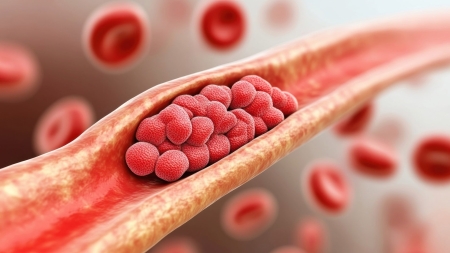Early detection of bowel cancer
If found early, most cases of bowel cancer can be successfully treated, which is why early detection is important. The two main procedures used to detect bowel cancer at an early stage are a faecal immunochemical test (FIT) and a colonoscopy.

What is a colonoscopy?
A colonoscopy involves a doctor using a small camera to look inside the bowel. The camera is attached to a long tube (endoscope) and inserted into the bowel. The camera transmits images of the bowel to a screen. This method enables doctors to detect intestinal polyps and tumours with a high degree of certainty. To prevent cancer from developing, the doctor can remove polyps directly at the same time as the colonoscopy is being performed. The bowel must be empty before the examination so that the doctor can get a clear view of everything. You will need to take laxatives and drink plenty of fluids both the day before and on the day of the examination. The examination is usually not painful. You may be sedated so that you are not awake during the procedure. In rare cases, there may be damage or bleeding when polyps are removed. People aged 50 to 69 will have the costs of the screening covered by their health insurance. Your insurance will cover the costs of a FIT every two years or a colonoscopy every ten years. Policyholders are required to pay the costs up to the maximum annual limit ("franchise") as well as the deductible.If systematic screening programmes are in place, policyholders are only required to pay the deductible. These are not subject to the annual deductible.The Swiss Cancer League (Krebsliga) recommends and supports bowel cancer screening programmes for people aged 50 to 74. The two main procedures used to detect bowel cancer at an early stage are a faecal immunochemical test (FIT) and a colonoscopy.
Some people have an increased risk of developing bowel cancer:
- if your parents or siblings have bowel cancer or multiple bowel polyps,
- if you have previously been diagnosed with intestinal polyps,
- if you suffer from chronic inflammatory bowel disease (Crohn's disease or ulcerative colitis).
Consult your doctor if any of the cases above apply to you. Your doctor can advise you on the age at which an examination is recommended.
Reducing risk
Unfortunately, there is no way to protect yourself against bowel cancer. However, maintaining a healthy lifestyle may reduce the risk of developing bowel cancer:
- Maintain a healthy weight.
- Get enough exercise.
- Cut down on red and processed meat, but make sure you eat lots of fibre-rich foods (e.g. wholemeal products, fresh fruit and vegetables).
- Keep your alcohol intake to a minimum.
- Refrain from smoking.
Recognise the symptoms
Bowel cancer develops slowly. This means that it may take years before you experience any symptoms.
The following symptoms may indicate bowel cancer:
- You have blood in your stool,
- You have an urge to have a bowel movement but do not pass any stools,
- You notice a change in your bowel movements,
- You have a pain in your stomach that doesn’t go away,
- You lose weight without meaning to.
These symptoms may be due to a cause unrelated to cancer. We recommend that you talk to a doctor about them.


